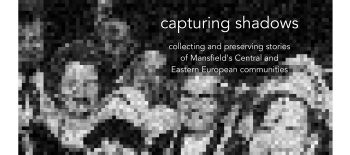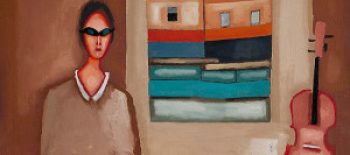The Nobel Committee awarded Wisława Szymborska the Nobel Prize ‘for poetry which, with ironic precision, allows the historical and biological context to come to light in fragments of human reality’. Her work exudes wisdom, brilliance and a unique sense of humour. She didn’t like pathos. She used to say: ‘Whenever I write, I feel as if someone was standing behind me and making clownish faces. That is why I am very careful and avoid big words as much as I can’.
She was born in 1923 in Prowent, Poland. Her poetic talent revealed itself in her early childhood. At that time, her father used to offer her a small coin for humorous short verses – on the condition that they were genuinely funny. During World War II, she attended clandestine classes and worked for the railroad to avoid transportation to the Nazi Germany. After the war, she began studying Polish literature at the Jagiellonian University in Cracow, but after a few terms she switched to sociology. For financial reasons, she quit her studies without a degree, though she was an active member of Cracow literary society. Her first poem was published in 1945, and her debut volume of poetry, Why We Live, in 1952. Since that time, her life was an uninterrupted burst of creativity. In poetry, she most valued elevating the everyday to the extraordinary.
She worked with many newspapers and magazines. She was prolific, but not all of her writing was published. Besides belonging to the Polish Writers’ Union and Pen Club, she was also an honorary member of the American Academy of Arts and Letters. Not just a poet, she was also a literary critic, essayist and translator of French Baroque poetry.
A sense of humor accompanied her in everyday life and manifested itself in her famous passion for creating collages, which she mailed as postcards to friends and acquaintances. She used newspaper clippings – both photos and texts – to create
extraordinary minimalist compositions. These collages, each composed for a specific addressee, were characterized by a surreal sense of humor and apt punch lines.
She died in 2012. When the poet’s funeral began at the Rakowicki Cemetery in Krakow, instead of the traditional bugle call that resounds every day at noon from St. Mary’s Tower, the trumpeter played a melody composed for Szymborska’s poem “Nothing happens twice”.
Nothing can ever happen twice.
In consequence, the sorry fact is
that we arrive here improvised
and leave without the chance to practice.
Even if there is no one dumber,
if you’re the planet’s biggest dunce,
you can’t repeat the class in summer:
this course is only offered once.
No day copies yesterday,
no two nights will teach what bliss is
in precisely the same way,
with precisely the same kisses.
One day, perhaps some idle tongue
mentions your name by accident:
I feel as if a rose were flung
into the room, all hue and scent.
The next day, though you’re here with me,
I can’t help looking at the clock:
A rose? A rose? What could that be?
Is that a flower of a rock?
Why do we treat the fleeting day
with so much needless fear and sorrow?
It’s in its nature not to say
Today is always gone tomorrow
With smiles and kisses, we prefer
to seek accord beneath our star,
although we’re different (we concur)
just as two drops of water are.
(Translated by Stanislaw Barańczak and Clare Cavanagh)



